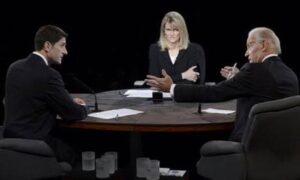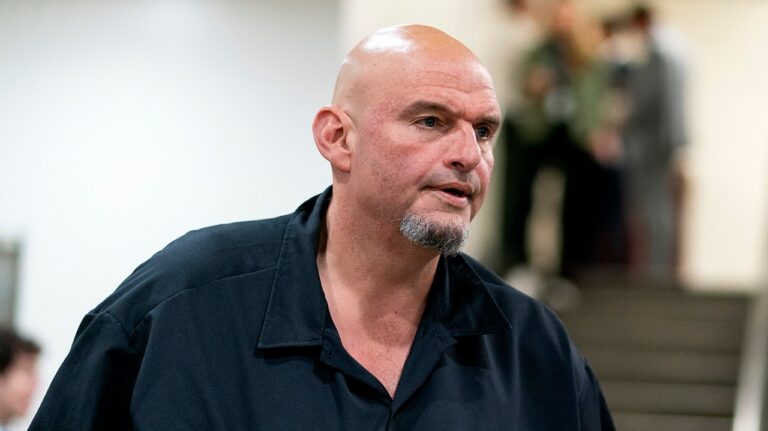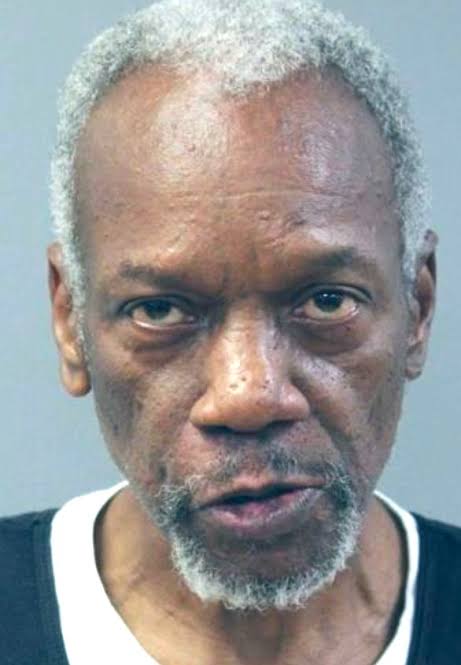Martha Raddatz Responds to Critics: Truth,Bias,and Journalism Today

The questions he asked, they generally say something important about American journalism and especially the pretense of fairness. Today we will discuss about Martha Raddatz Responds to Critics: Truth,Bias,and Journalism Today
Martha Raddatz Responds to Critics: Truth,Bias,and Journalism Today
In the ever-evolving landscape of modern journalism, where public trust is increasingly questioned, reporters like Martha Raddatz stand as key figures in the ongoing conversation about truth, bias, and the role of media in democracy. As ABC News’ Chief Global Affairs Correspondent, Raddatz has become one of the most prominent faces in political and foreign reporting, especially known for her hard-hitting coverage of military affairs and international crises. However, with her high profile comes scrutiny, both from the public and the press itself.
Raddatz has faced her fair share of criticism, from accusations of bias to questioning the integrity of her reporting style. But what sets her apart is how she has consistently navigated these challenges with poise and a commitment to journalistic integrity. This article takes a closer look at the criticisms directed at Martha Raddatz, her responses to those critiques, and the broader questions of truth and bias in journalism today.
1. The Rise of Martha Raddatz: A Trusted Figure in Journalism

Martha Raddatz’s career trajectory is a testament to the impact of dedicated, impartial journalism. She began her career in local news, honing her skills in reporting before rising to national prominence. Over the years, Raddatz became known for her authoritative, clear-headed reporting, especially in the fields of military conflicts and international relations. Her deep experience and knowledge of the geopolitical landscape have made her a trusted source of information for millions of viewers.
Perhaps one of Raddatz’s most notable career milestones came in 2012 when she moderated the vice-presidential debate between Joe Biden and Paul Ryan. In a field where moderators are often criticized for being passive or overly controlled, Raddatz stood out for her directness and her ability to ask tough, incisive questions. Her performance during the debate was widely praised for its clarity, fairness, and commitment to holding both candidates accountable.
2. Accusations of Bias: A Prevalent Criticism
Despite her reputation for professionalism, Martha Raddatz has not been immune to criticism. One of the most common accusations levied against her over the years is that she harbors a political bias. Critics argue that, as a member of the media, Raddatz should remain neutral in her reporting, but her visible positions on certain political issues have raised doubts in the minds of some viewers.
The claim of political bias often comes in the form of accusations from both the left and the right. For example, some conservative pundits argue that Raddatz’s questions during debates or interviews often seem to favor liberal viewpoints or are framed in a way that undermines conservative arguments. On the flip side, some progressive voices criticize her for not being harsh enough on right-wing politicians or for failing to challenge certain narratives effectively.
Raddatz herself has responded to such accusations with a commitment to transparency and fairness. In interviews, she has consistently emphasized that her job as a journalist is to present the facts as they are, without bending them to fit any ideological narrative. She believes that neutrality is key to maintaining the trust of the audience. However, she also notes that complete objectivity is impossible, as every reporter brings their own experiences and perspectives to their work. Raddatz often reminds critics that her goal is not to promote a specific political agenda but to provide viewers with the information they need to form their own opinions.
3. The Challenge of Objective Reporting in a Polarized World
The issue of bias in journalism is not unique to Raddatz but is a broader challenge facing the media industry today. In an era of increasing political polarization, where social media amplifies extreme viewpoints and online echo chambers thrive, maintaining objectivity in reporting has become more difficult than ever.
Raddatz’s experience in this environment highlights a core challenge of modern journalism: the balance between providing accurate information and facing the criticism of both sides of the political spectrum. Many journalists, Raddatz included, often find themselves walking a fine line, trying to present factual information while being accused of bias from all sides. This challenge has been exacerbated by the rise of partisan news outlets, which cater to specific ideological groups and often reinforce existing beliefs rather than questioning them.
As the media landscape continues to fragment, Raddatz and her colleagues in mainstream journalism are tasked with navigating a complicated terrain. She has acknowledged that the public’s trust in the media has eroded over the years, and she’s fully aware of the power of narrative. In her interviews, Raddatz frequently stresses the importance of facts over opinions, reminding both her audience and critics that the truth is often more complicated than ideological narratives allow for.
4. The Role of Truth in Journalism: Raddatz’s Philosophy
For Raddatz, the pursuit of truth is not just a professional responsibility; it is the foundation of her work as a journalist. She has long held the belief that storytelling, while powerful, should never overshadow the truth. In an era where “fake news” has become a popular refrain, especially in political circles, journalists like Raddatz have made a conscious effort to focus on fact-based reporting.
Raddatz believes that while the media is tasked with telling compelling stories, those stories must always be rooted in verifiable facts. When it comes to foreign policy or military conflicts, for example, Raddatz’s reports are filled with detailed information, sourced from experts, military personnel, and first-hand accounts. Her reporting is grounded in the idea that stories should be reflective of the complexities of the issues at hand, not simplified into digestible sound bites that suit a particular agenda.
However, Raddatz’s commitment to truth is often tested in an environment where sensationalism tends to dominate. In the world of 24-hour news cycles and the rise of social media, journalists are often pressured to report quickly, sometimes at the expense of nuance. For Raddatz, the constant challenge is to slow down the rush to publish and ensure that every report she files is as accurate as possible, a process that requires patience and meticulousness. In response to the criticism that modern journalism has become too sensationalized, Raddatz insists that the focus should always be on presenting a complete, balanced picture of events.
5. Journalism Today: Trust, Accountability, and Responsibility
Martha Raddatz’s responses to critics also touch on the larger issues facing journalism today. The notion of trust has become a crucial aspect of her work, particularly as many Americans express growing distrust in the media. This distrust is fueled in part by the rise of misinformation, the spread of conspiracy theories, and the increasing partisanship in media outlets.
According to Raddatz, the most important thing journalists can do in this climate is to remain accountable to the truth. She stresses the need for journalists to be transparent with their audiences about their reporting processes and the sources they rely on. This transparency, she believes, is key to restoring trust in the media. In an era where misinformation spreads rapidly, Raddatz maintains that journalists must go the extra mile to verify facts and avoid contributing to the already existing confusion.
Raddatz also highlights the unique responsibility that journalists have in a democratic society. She believes that the press plays a crucial role in holding the government and other powerful institutions accountable. Without a free and independent press, Raddatz warns, democracy itself is at risk. This conviction shapes her reporting, ensuring that she always aims to ask tough questions and challenge authority when necessary, even when it invites controversy.
6. Responding to Criticism: The Importance of Resilience
Martha Raddatz’s ability to respond to criticism with grace and resilience is a critical aspect of her persona. Journalism is a field where public opinion can shift rapidly, and media figures are often the subject of intense scrutiny. Yet, Raddatz has managed to maintain her composure throughout her career. She does not shy away from the criticism leveled against her, whether it pertains to bias or her style of reporting. Instead, she views these critiques as opportunities for reflection and growth.
By acknowledging that journalists can make mistakes, Raddatz reminds us that the pursuit of truth is a continuous process. Her responses to criticism are not defensive but are grounded in the belief that journalists should always strive to improve their craft. For Raddatz, being a journalist means being adaptable and willing to evolve as the media landscape changes. It also means standing by the values of transparency, accountability, and fairness—values that continue to shape her career.
Conclusion: The Ongoing Role of Journalists in Shaping Public Discourse
As the world of journalism continues to grapple with questions of truth, bias, and the role of the press in a democratic society, figures like Martha Raddatz remain at the forefront of these discussions. Her career is a reminder that, despite the challenges, the pursuit of truth in reporting is not only possible but essential. In a time when the lines between fact and fiction are often blurred, Raddatz’s commitment to unbiased, fact-driven journalism stands as a beacon for future generations of reporters.
Ultimately, the challenge of journalism today is not just about confronting accusations of bias or navigating the pressures of a 24-hour news cycle. It is about ensuring that the press remains a trusted institution in the eyes of the public. For Martha Raddatz, this means continuing to ask tough questions, holding powerful figures accountable, and always seeking the truth—no matter how difficult or uncomfortable it may be.
How useful was this post?
Click on a star to rate it!
Average rating 0 / 5. Vote count: 0
No votes so far! Be the first to rate this post.
About the Author
usa5911.com
Administrator
Hi, I’m Gurdeep Singh, a professional content writer from India with over 3 years of experience in the field. I specialize in covering U.S. politics, delivering timely and engaging content tailored specifically for an American audience. Along with my dedicated team, we track and report on all the latest political trends, news, and in-depth analysis shaping the United States today. Our goal is to provide clear, factual, and compelling content that keeps readers informed and engaged with the ever-changing political landscape.




